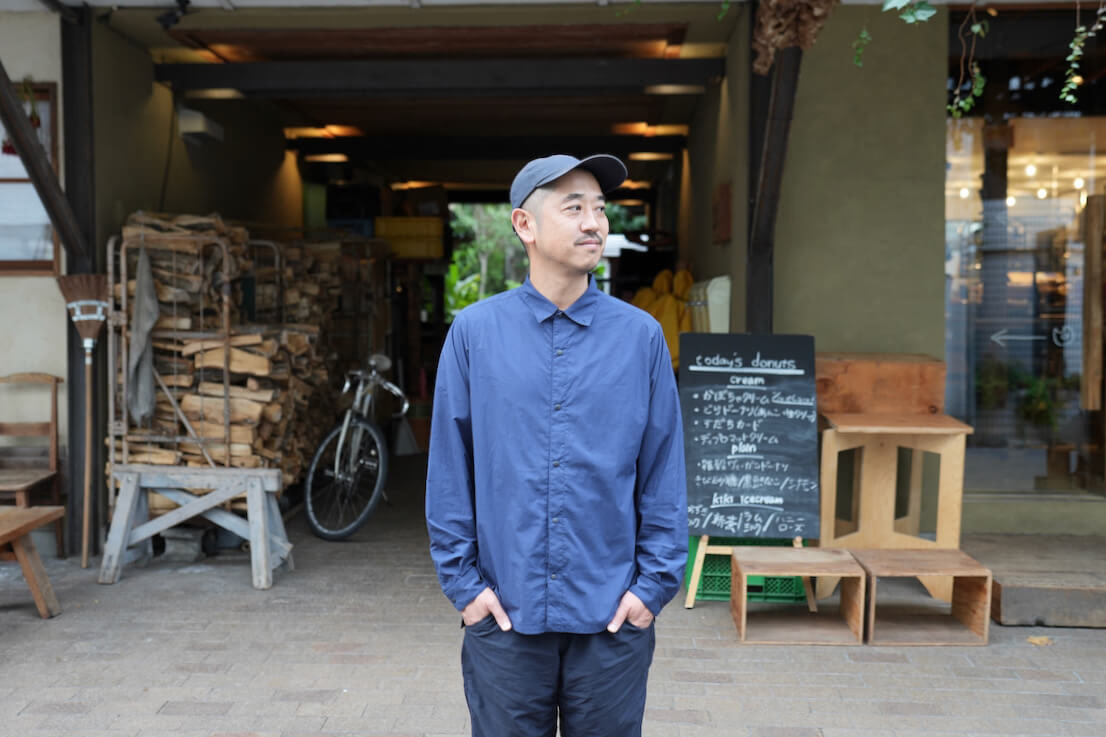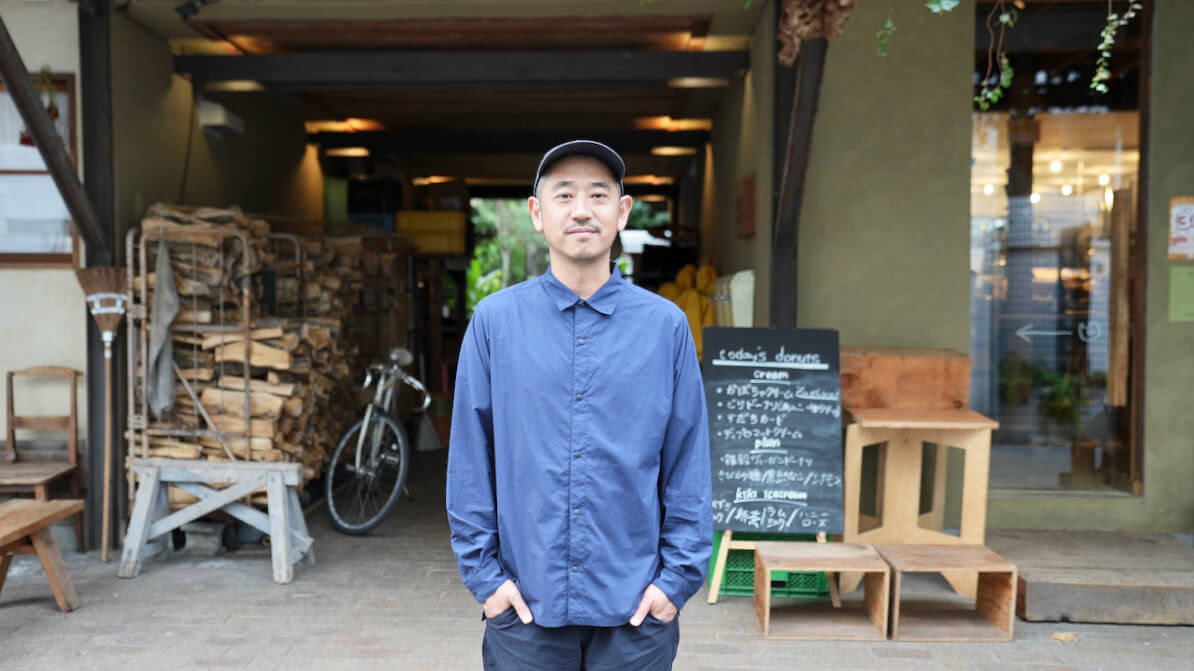創業20周年を迎える2024年、モノサスは創業者・林隆宏から眞鍋太一への代表交代という大きな節目を迎えます。本記事では、眞鍋へのインタビューを通して、新代表の紹介とこれからのモノサスが目指している方向性についてお伝えしたいと思います。
1977年愛媛県生まれ。アメリカの大学でデザインを学び、東京で広告業界に10年ほど従事したのち2012年モノサスに入社。2014年3月妻子と神山町に移住。2016年4月に地域の農業を次世代につなぐFood Hub Projectを、神山町役場・神山つなぐ公社・モノサスと共同で立ち上げ、2021年4月より共同代表取締役 支配人に。2020年に社食事業を担うMONOSUS社食研をモノサス社内に設立。Food Hub Projectで2018年度グッドデザイン金賞(経済産業大臣賞)受賞。2019年11月から"100% Organic Japan"を目指すレストラン "the Blind Donkey"の支配人も務める。2024年モノサス代表に就任。
入社12年目に受け取る最大のバトン
ー はじめに、モノサスに入社してから現在までのことを聞かせてください。
眞鍋 入社した2012年頃は、籍だけを置いて外部委託のコンサル的な仕事をする"幽霊社員"みたいな感じでした。その翌年、林さんが見ていたプロデュース部(広告制作全般を手がける部署)の部長を任されて、10名弱のチームと一緒に仕事をするようになりました。同年秋に林さんと神山に視察に行き、「ここなら何かできる」と思って2014年春に家族で移住。神山に住もうと決めた理由はいろいろあるけど、いつかは四国に戻りたいと思っていたし、子どもたちの進学のタイミングだったというのが大きいです。
ー もともと"幽霊社員"だったのに、モノサスに深く関わるようになったのはどうしてですか。
眞鍋 林さんにものすごく粘り強く口説かれた覚えがあります(笑)。ひとりで外部委託のコンサル仕事をしていたときは、チームで仕事をする可能性はあまり考えていませんでした。プロデュース部を任されて、みんなで一緒にやることで仕事の幅が広がったと思います。チームに支えてもらうことによって、自分は新しいことに挑戦できるようになり、2016年に神山でFood Hub Project(以下、フードハブ)という事業を立ち上げました。
フードハブの創業時は林さんが代表でしたが、5年後の2021年に私と白桃薫が共同代表になっています。そのときもやっぱり林さんは粘り強くずっと話を聞いて一緒に考えてくれました。
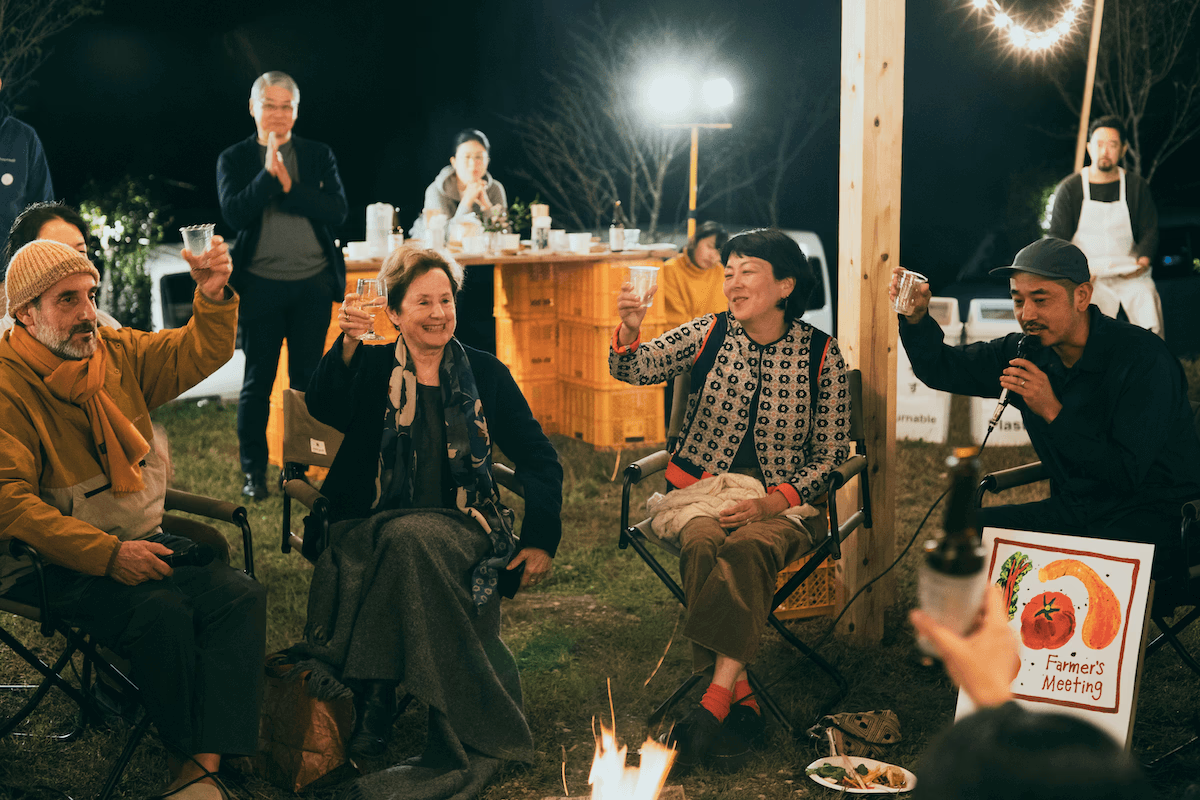
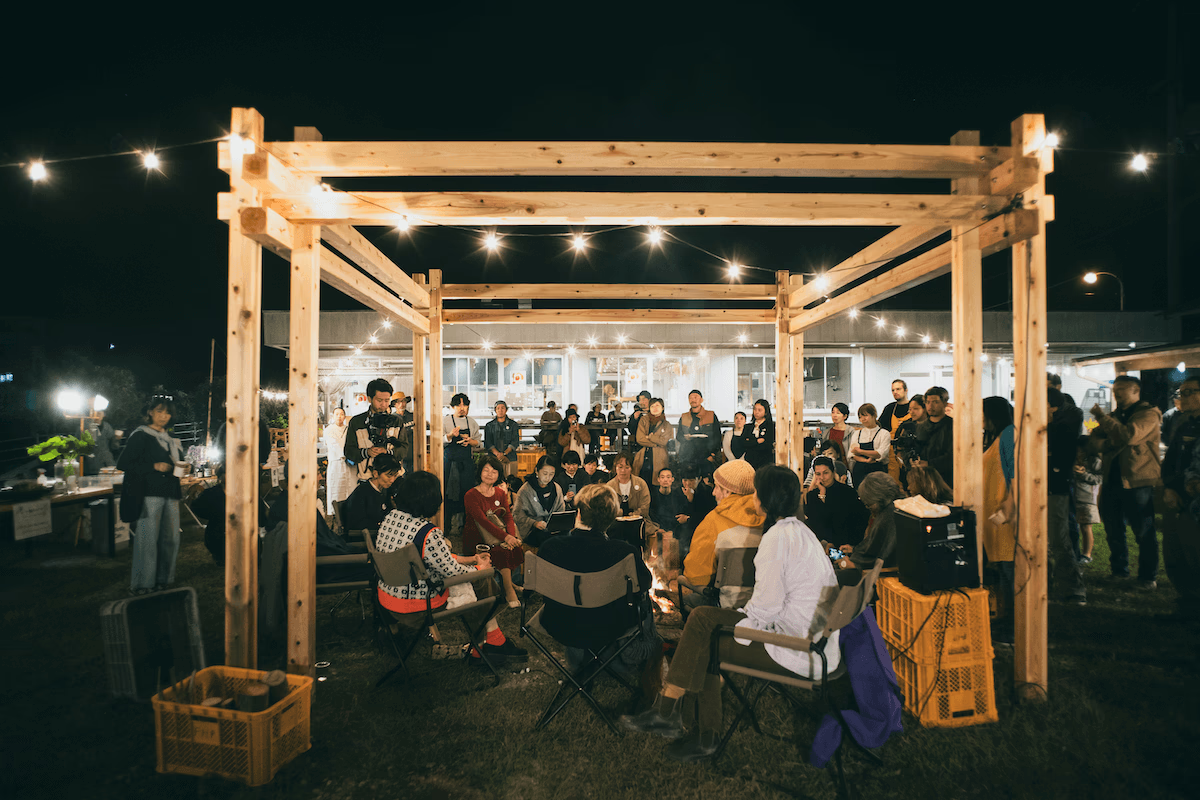
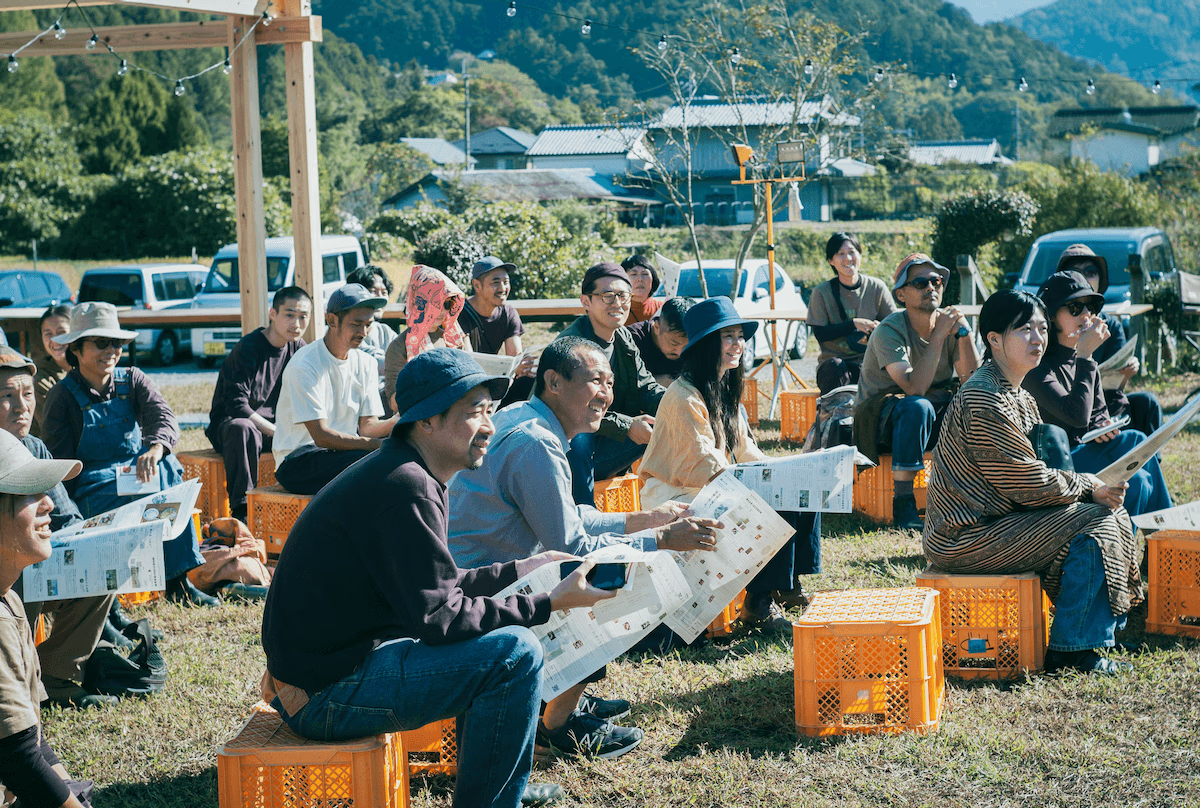 写真:生津勝隆さん
写真:生津勝隆さん
振り返れば、林さんはいつも私のために非常にベストなかたちを用意してくれていた。林さんが代表として責任をもってくれているから、思いっきり突っ走れました。林さんだけではなく、同じく経営陣の永井さん、柵山さんにものすごく支えてもらったので、彼の言葉で言うと「経済合理性よりも美学」、本当にやるべきことを妥協なく邁進することができました。
ー モノサスという会社が、眞鍋さんというメンバーのやりたいことを支えてくれて、同時に眞鍋さんのモノサスとの関わりが深まっていったということでしょうか。
眞鍋 そうですね。林さんを中心とした経営陣が支えようと思ってくれて、そのための状況をつくってくれていたのだと思います。「いずれ代表を受け渡す」なんてことは彼自身まったく考えていなかったと思うけど、林さんから少しずつバトンを受け取ってきて10年が経ち、さらに大きなバトンとして代表交代があったと言えるかもしれません。
CDOとして進めてきた組織・文化づくり
ー 眞鍋さんがモノサスへの関わりを深めたのは、5年ほど前からCDO(Chief Design Officer)として進めてきた会社の仕組みや文化づくりを経てだったと思います。
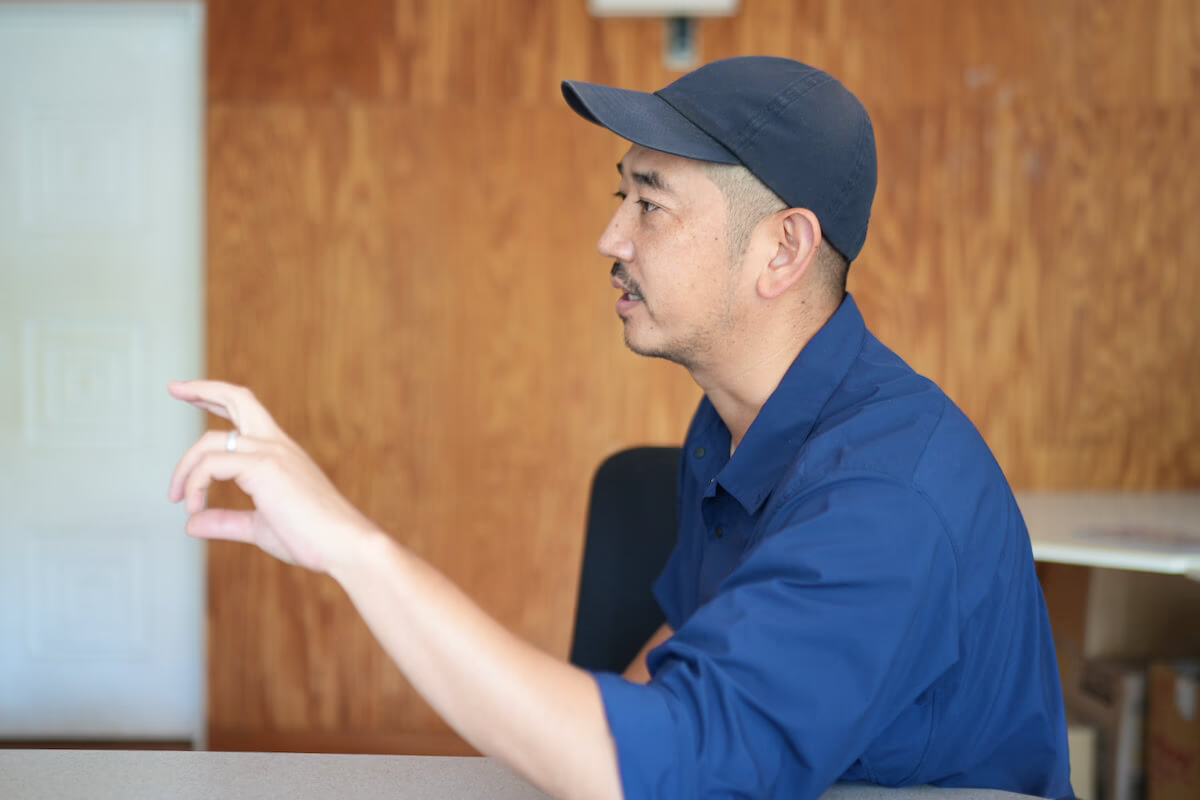
眞鍋 そうですね。CDOになって、会社組織の文化を横串で考える立場で関わるようになりました。会社の仕組みについては、経営と現場、社長とメンバー、メンバー間の関係性を再構築するための場をつくることからはじめました。これにより、ビジネスオーナー制度やユニット制を導入するきっかけが生まれたと思います。また、人事制度についても五月雨式にできあがっていたものをデザインし直すプロジェクトに取り組んでいます。人事制度のプロジェクトでは、ポテンシャルメンバーと日本仕事百貨が開催している「かこむ仕事百貨」に一緒に行って、合宿してチームビルディングからはじめました。
やっぱり、みんなで一緒に働くにはルールや制度などの仕組みは必要です。その仕組みを従来の「管理型」ではなく「対話型」にすることで、より働きやすくなり、組織が健やかになり、関係性が良好になっていくのはすごく大事だと思うんです。それと同時に、神山でフードハブを立ち上げ、苦労した経験を、モノサスの組織や会社運営にどうフィードバックするのかはずっと考えていました。
ー たとえば、どんなことをフィードバックしようと思われたのですか。
眞鍋 ひとつは、全社会議のあり方です。フードハブでは全体会議を委員による自治運営で行っていて、経営者が全員を招集するような会議はひとつもありません。モノサスの全体会議も同じように、委員による呼びかけによって起きていくものごとへと設計し直しました。これも管理や統率型ではなく対話による組織運営の方法のひとつです。またコーポレートサイトの「ものさすサイト」を通してメンバーのようすを伝えながら、会社の文化を育んでいったこともCDOとしてやったことのひとつです。これらの取り組みによって、コロナ禍でリモートワークがはじまっても組織に属している実感を保てたと思うし、作業効率が上がったというメンバーもいたと思います。
もうひとつは、仕事に対して自己同一性をもつことです。メンバーみんなが「自分たちは良い仕事をしている」と誇りに思える状況をつくりたいと思っています。
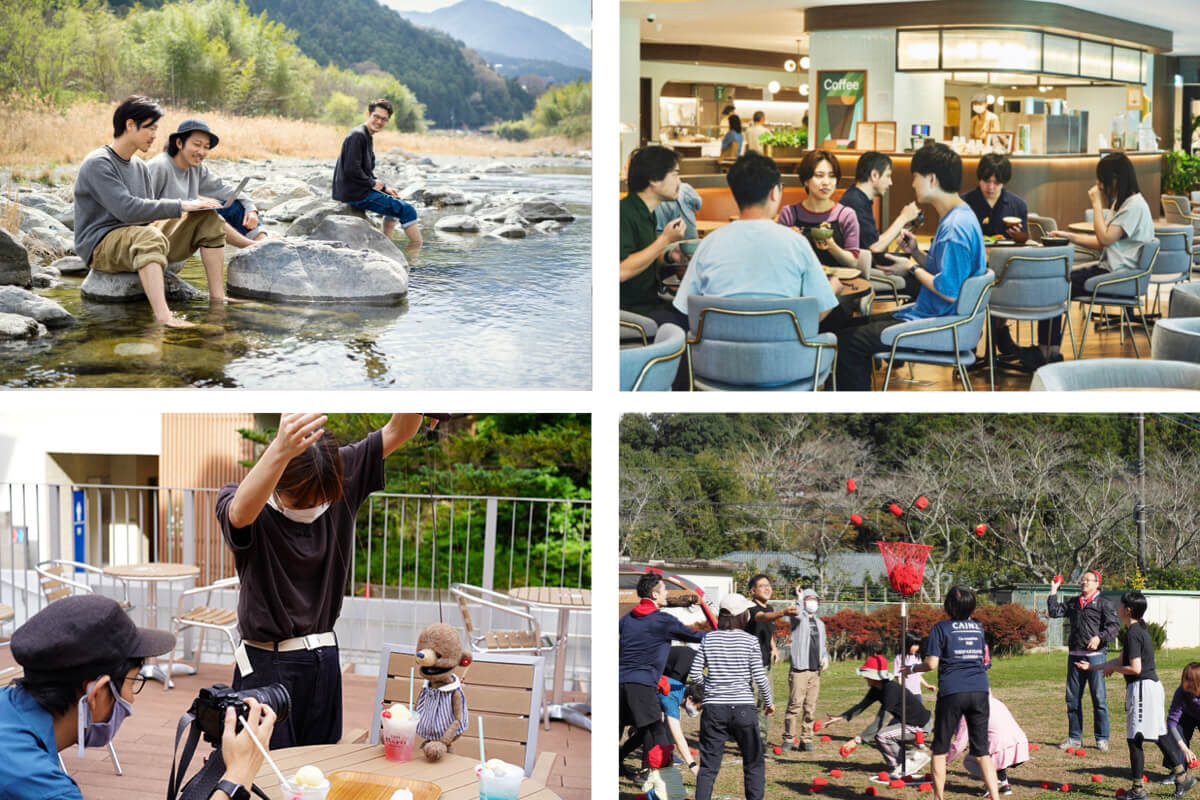
会社という"生き物"を育てていくために
ー 眞鍋さんが代表という"バトン"を受け取るに至る流れがあったのだなと思います。でも、そのバトンを受け取ったのは、やはり眞鍋さんの意志があったからではないでしょうか。
眞鍋 個人的なことですが、代表交代に至るきっかけのひとつに亡き父が半世紀ほど経営していた町工場の事業承継がありました。そのとき、いろんな方法があると思ったんです。会社の株だけを売ることもできたし、建物を潰して更地にして土地だけ売ることもできました。決算書も蓋をあけると大変なことになっていたのですが、私は社歴20年くらいの社員さんに事業承継してもらうことにしました。
そのプロセスのなかで、会社は"生き物"と同じだし、周囲にはおつきあいする会社との生態系もあるのだと実感しました。同時に、「会社は誰のものなんだろう?」という問いが生まれてきました。「これから自分は、フードハブをどうするんだろう。モノサスとの関係性をどうするんだろう?」と考えていたので、2023年初めの役員会議で「来年はモノサス創立20周年だし、10年後を見据えてあなたたちはどうしたい?方向性によっては、自分も関わり方を考えたいから一緒に考えませんか?」と問いかけてみました。
ー モノサスがいつか事業承継をするとしたら?を役員のみなさんが考えはじめたんですね。
眞鍋 はい。いろんな議論があったなかで、林さんから「今なら引き継げるかもしれない」と言われて、いったん私が受け取ることになりました。林さんは創業者として会社を育ててきた人だから、彼にとってのモノサスは自分と分かちがたく結びついたものだと思うんです。彼自身がフラットな立場でみんなと考えるのは、そう簡単なことではありません。なので、いったん私が受け取って、「モノサスをどうしていくか?」をみんなと一緒に考えたらいいんじゃないかと思ったんです。
次の世代に"バトン"を渡すために
ー これまでの積み重ねのうえで、眞鍋さんは代表としてどんな経営を目指そうとしていますか。
眞鍋 最近、経験を重ねてきて、私は、個が成長する環境を整えることに関心が高いんだな思うようになりました。みんなも年齢を重ねてきているので、彼らの状況をより良くしてあげたいと思っています。株式会社には、株主、役員、従業者がいます。私自身は誰かに搾取されたくないし、搾取する側にも立ちたくありません。できるだけフェアな状況をつくるには、「会社は誰のものなのか?」という問いを真ん中に置いて、対話によって解決するしかないと思っています。
大きな言葉で言うと、目指したいのは民主主義的な組織の運営なのかもしれません。宇野重規さんは『民主主義のつくりか方』(筑摩書房)で、「民主主義とは自分たちの社会の問題を、自分たちで考え、自分たちの力で解決していくことのはずだ」と書かれています。この「社会」を「会社」に読み替えていくことではないかと考えています。
会社のなかに、「ルールを作る側」と「ルールを押し付けられて従う側」に分断された状態をつくりたくありません。変化が激しい時代のなかで、経営陣も悩みながらルールを変化させているので、違和感を感じたら、問いかけたり、自分の意見を表明したりする関係性があるべきです。もちろん、ルールを作る側にもまわってもいいし、あるいは会社に判断を任せたいのなら「決めてください」と意思表示をしてもいいと思います。それぞれのやり方で、対話に加わって一緒に考えられる組織でありたいです。
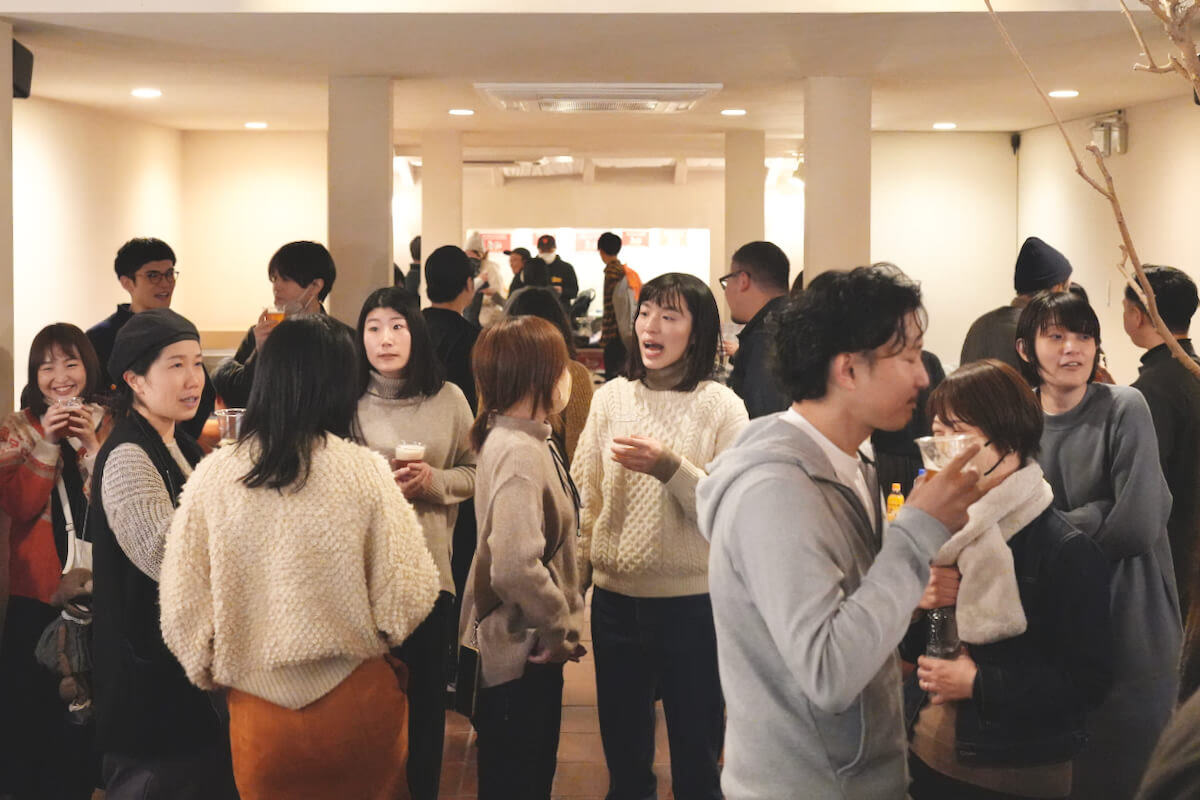
ー 眞鍋さんは、10年後のモノサスをどんなふうに考えていますか。
眞鍋 経営面で言うと、代表も交代可能なシステムを組み込みます。任期は4年1期として、4年ごとに代表という役割をメンバーにレビューしてほしいんです。2期が終わる8年後、私は55歳です。お互いを育て合うなかで次の代表を担えるメンバーが現れるような関係性をつくりたいし、私自身も8年をかけて次世代への引き継ぎを準備したいと考えています。
事業面では、モノサスという組織がもつテクノロジーとデザインの力に、フードハブで約8年かけて培ったものづくりの文脈を加えて、自分たちでつくったものを自分たちで売る「Direct to Consumer(DtoC)」をやりたいと考えています。もうひとつは、もっといろんな会社さんや外部パートナーさんと一緒に事業を作れるんじゃないかと考えています。これからのモノサスは、広い意味でのデザインができる会社になれると思っているんです。
ー 広い意味でのデザインとは?
眞鍋 たとえば、フードハブは「農業と食文化の地域内循環システム」のデザインとして、2018年にグッドデザイン賞で金賞を受賞しました。事業の目的も大事だし、ごはんやパンがおいしいこと、そのパッケージが適切にデザインされていること、お店やそこで働くメンバーの雰囲気なども含めて、デザイン経営みたいなことを言われる時代に、町役場などの様々なステークホルダーとの関係を含む組織経営をデザインした結果だと思います。
商品やプロジェクトだけでなく、関わる人や場所、状況までを含め、事業性とセットでデザインをできる会社はそう多くありません。モノサスという会社、今ここにいるメンバーとなら、この社会のなかにそういうデザインの観点でものごとを生み出せるんじゃないかと考えています。
ー ありがとうございました。
かつて林さんが書いた「モノサスという会社」という文章には、「会社っていったいなんのためにあるのだろう?という疑問があり、その答えを知りたくてモノサスという会社をつくった」と書かれています。その問いは、新しく代表になる眞鍋さんとメンバー全員が受け継いでいくのだろうと感じました。「ものさす人たち」が開く新しい扉の向こう側にある景色を、外部パートナーのひとりであるわたしも一緒に見たいと思います。
